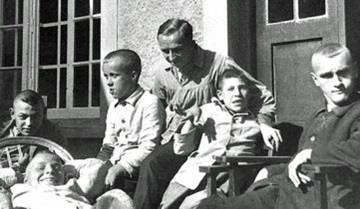Pro Life Law Should Proceed Through Polish Legal System As Planned
PRECIOUS Life has lambasted a scandalous month-long delay by the Polish government to implement a recent ruling which would have stemmed the tide of eugenic abortions in the country.
Director of Precious Life, Bernadette Smyth has said the pro-life ruling, which would make it abundantly clear that murdering sick babies while still in their mother’s womb, is one of the biggest human rights abuses of the century and that the ruling should proceed through the Polish legal system as planned.
Mrs Smyth described the ruling of October 22nd 2020 as momentous. She added that not publishing the court ruling was “completely illegal” and one that will see more unborn babies continue to die until it is implemented.
Mrs Smyth continued: “Sadly, many faithful Christians recognise that, unpublished the pro-life ruling will have no legal power. While it should have been a resounding victory for unborn babies their lives still remain in jeopardy this week.”
Mrs Smyth added: “This ruling gave hope to every unborn baby in Northern Ireland and it would send a clear message to our MLA’s in Stormont that the undemocratic law, enacted on 21st March this year, is a regressive one, that mirrors Nazi Germany’s programme - Aktion T4, when in 1939 doctors determined which baby was ‘a Life Unworthy of Life.’
“Today, we agree how revolting this law was but society seems to be unable to draw the same conclusion with current abortion laws. Poland however, have recognised the parallels.
Mrs Smyth continued: “We believe Stormont must wake up too and Repeal Section 9 of the Northern Ireland Executive Formation Act immediately.
“The Westminster Parliament broke all principles of democracy and devolution when it forced this merciless Act on Northern Ireland without the consent of its people or elected representatives.
“The right to life of every unborn baby must be safeguarded and protected in Northern Ireland. Since then over 719 unborn babies have been cruelly slaughtered. We say ‘Not In Our Name.”
The ground-breaking move by the Polish government last month could save over 1000 innocent lives every year. Last year alone, 1,074 sick children were legally killed in the womb in Poland, including 435 children with Down syndrome, a number that multiplied with each passing year.
The new ruling came when a petition was made to the Constitutional Tribunal by a cross-party parliamentary initiative of which one hundred nineteen deputies from three different parliamentary clubs, eight political parties, and non-party members signed the application last Thursday, October 22.
It stated the provision allowing "abortion in the case of a high probability of severe and irreversible impairment of the foetus or an incurable disease that threatens the foetus," was now unlawful.
It further states the act is inconsistent with Art. 38 of the constitution, which says that the Republic of Poland provides every human being with legal protection of life, and Art. 30, and reads: The inherent and inalienable dignity of man is the source of human and civil freedom and rights. It is inviolable and its respect and protection is the responsibility of public authorities.
Following the judgment of the Constitutional Tribunal in the 1993 Family Planning Act, the provisions on the permissibility of abortion when pregnancy poses a threat to a woman's life or health or when the pregnancy resulted from a prohibited act, remain.
The new ruling comes in the same week as Russia marked the 100th Anniversary when it became the first country in the world to legalise terminations on October 27 1920 – a move which Mrs Smyth claimed “heralded the beginning of the worst genocide in human history.”
Since then it is widely estimated there have been well over two and a half Billion babies murdered through abortion across the world.
Meanwhile, a government aid has said political leaders are taking time to debate the contested ruling and find a solution.
Poland’s prime minister, Mateusz Morawiecki showed signs there may be a weakening of the ruling this week when he appealed for talks with the protesters and liberal lawmakers to find a settlement.
Head of the prime minister’s office, Michal Dworczyk, said: “It would be good to take some time for dialogue and find a new position in this situation that is difficult and stirs high emotions.”




